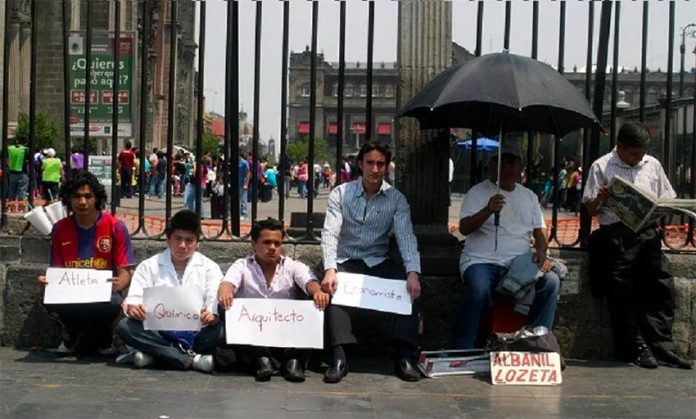While walking downtown with my mask and maintaining my distance from others, hand gel in pocket, I can’t help but feel exceptional (I was one of those kids, and kind of still am).
This isn’t so bad! It’s a little uncomfortable, but surely we can collectively rally for the good of the whole. I think we’re gonna make it.
Then I see a city bus pass by, packed with people, and my optimism sinks. Not all of them are wearing masks. Most of them are going to work, of course, because what else can they do?
There have been no stimulus checks, no pardons of rent, water bills, electricity bills, grocery bills. Charity is available but not widely advertised — nor could it stretch the necessary amount if everyone did know about it — and the assurance that “the worst is over” is cold comfort for those wondering what they’re going to feed their families tomorrow.
Hypothesis: capitalism and protection against the spreading of the coronavirus cannot co-exist, and the friction between these two facts is pushing us all over the edge.
The coronavirus couldn’t care less about capitalism and its weird way of running things in our lives. It doesn’t care that people will become destitute. It doesn’t care that anyone’s business will go under. And for those of us (which — let’s face it — is all of us) stuck within the parameters of capitalism, this is a problem.
I agree with José Antonio Ocampo, chairman of the international think tank ICRICT, that President López Obrador is simply not doing the right thing by insisting on austerity measures. This is the time literally to break the bank in order to keep people alive and safe.
I understand his resistance to what amounts to “bailing out” big businesses, but it’s as if he’s forgotten that those businesses actually employ a great many citizens. While the emphasis he’s giving to social programs for the poorest and neediest is admirable, it is not enough to keep the country afloat.
As things stand, plenty of people are falling fast into that category of “the poorest and the neediest” because they’ve lost their jobs or their micro and small-businesses have gone under. And no, Mr. President, a single 25,000-peso loan is not going to fix things — especially when you add the stipulation that they not let anyone go despite sudden sub-zero earnings.
So what are we to do?
At this point, it’s hard to say how we could reverse course. Many businesses and livelihoods have long been lost already, making it more urgent, not less, for people to go out looking for other work. And what do all those people being out and about mean? Well, more than anything it means that this health crisis won’t be ending anytime soon.
If we want people to stay home, we literally need to pay them to stay home. Even then, this is not a country of people who love hanging around inside. The culture of “enjoy what you can when you can” goes directly against our contention efforts, especially in these times of stress. Life is hard and quite possibly short in the best of times, so (the idea goes) party when you’re able to party.
On top of this, our infrastructure is not made for keeping our distance. Physical closeness is built not only into the culture but into our very communities, with narrow passageways and close quarters being the norm. Who needs wide open spaces when you can just be together instead?
Additionally, this is not a country where people are accustomed to following the rules. Just look at the opening of the La Paz beaches where they were immediately packed, citizens and authorities ignoring regulations about social distancing and capacity. Rules are meaningless if no one has the authority or the will to enforce them.
But let’s talk about what we can achieve.
- This, to me, is the most important: we can pay people to stay home rather than going out looking for work. It won’t keep everyone inside, but it will keep more people inside, and a smaller crowd is better than a bigger crowd. Let’s not throw our hands up in the air and walk away just because something gives a good-ish result instead of a perfect one.
- Businesses can keep insisting on mask-wearing upon entry, temperature-taking, and essentially spraying people down in anti-bacterial gel. Only allowing one person in at a time, while annoying, does seem to be keeping the quantity of bodies in enclosed spaces down, so let’s keep doing that.
- Test widely and make it free. If they can do it in Acapulco, they can do it in other places, too. This will help us get a handle on hot spots, get sick people off the streets and the care they need, and will limit the spread of contagion since more people will be aware they’re carriers.
- Find ways to show people you care without touching them. As I tell my daughter, it’s terrible not to be able to play with our friends, but it won’t be forever.
- If you must be around others (and the reason for the “must” could be for your own emotional and mental health — I’m no one to judge), do you best to lather yourself in antibacterial gel and keep a safe distance.
The ability to self-isolate is a privilege, and it’s mostly an economic one. Let’s make that privilege more accessible to everyone.
Sarah DeVries writes from her home in Xalapa, Veracruz.
